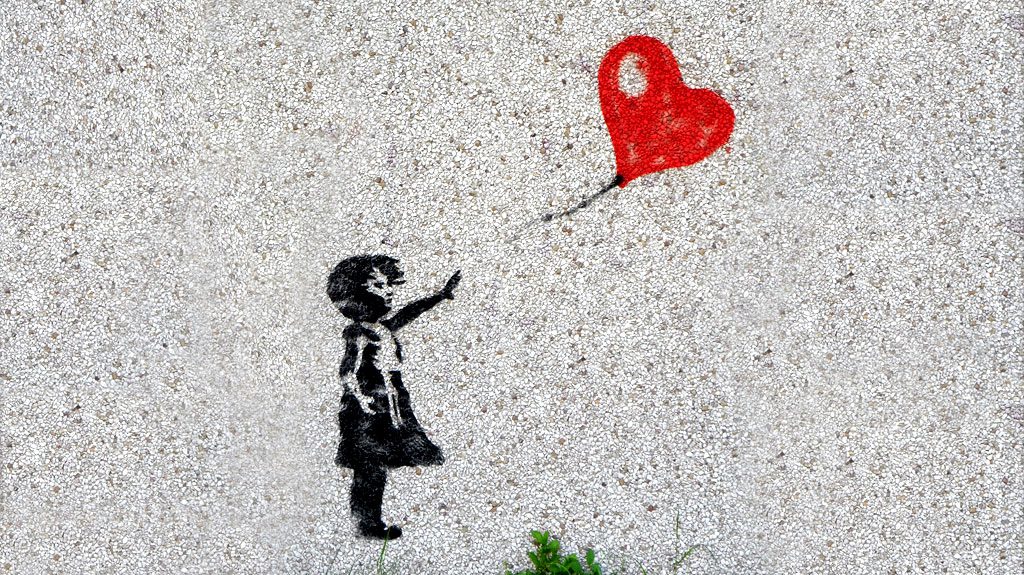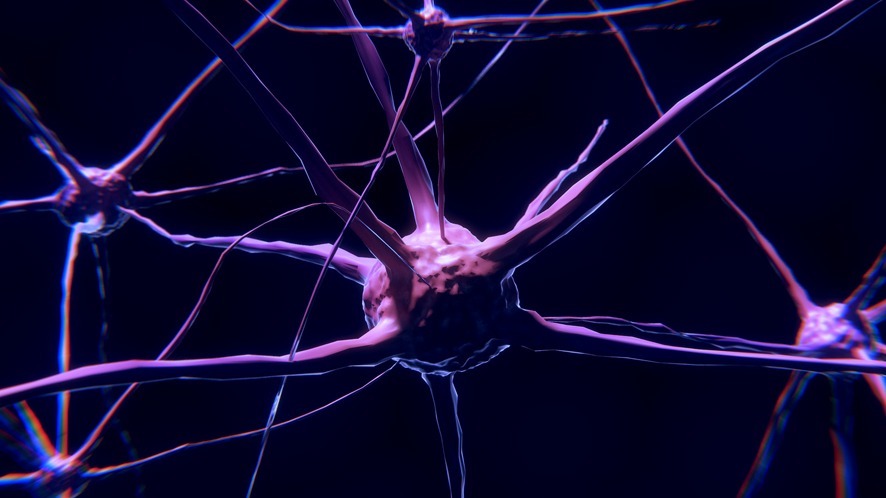Overview
Introduction
In the previous article, I explored the dynamics inherent in the relationship between a narcissist and an empath, stemming from their contrasting personalities and emotional responses.
While the portrayal might suggest that the narcissist plays the villain and the empath the victim, this narrative fails to capture the complexities of their interaction. Within this dynamic lie transformative opportunities for personal growth. Blaming the other party is disempowering; it strips you of your agency, fostering a mindset that “I reacted this way because of the other person.”
Remember: the narcissist is your mirror, reflecting your unresolved inner issues and providing you with the chance to evolve. Both parties harbor unaddressed aspects that emerge through their interactions. This article aims to illuminate how these dynamics can serve as catalysts for self-empowerment and personal responsibility.
The negative impact of labeling is addressed in this article:
15 Opportunities for empaths to grow
Everyone encounters adversity throughout their lives – experiences that can shatter the sense of self. While we cannot avoid such challenges, we can choose how to respond. Will we mourn endlessly, or will we nurture and beautify our broken parts, transforming them into sources of strength? The following 15 keys are designed to empower you to embrace and strengthen those seemingly broken aspects of yourself.
1. Prioritize your own needs
In relationships with narcissists, empaths often ignore their unmet needs due to the narcissist’s inability to empathize. The narcissist tends to evade responsibility, pushing the empath to reflect inward. Emphasizing shared experiences, the empath becomes increasingly aware of his fears, anxieties, and emotional burdens. Sometimes even trauma material surfaces. As this realization dawns, they may grow frustrated with themselves.
This relationship presents a crucial developmental opportunity for empaths to differentiate their own needs from those of their partner. It compels them to learn to recognize, express, and advocate for their needs, countering the common misconception that others can intuitively discern what they desire. This unspoken expectation leads to chronic dissatisfaction and reinforces the belief that “I’m not important.” To explore how to stay true to yourself in this process, I invite you to check out this german video by using automatized english subtitles.
2. Reassess your love ideals
Empaths often carry early experiences that contribute to the neglect of their own needs. In his book, “The Love of Empathic People, “ (german) Luca Rohleder highlights that empaths maintain a unique connection to the “invisible world,” unlike others. This connection has a direct line to a non-material realm of energies and vibrations. Rohleder posits that empaths aspire to an ideal of unconditional love, often rooted in the mother-child relationship.
While striving for this ideal is admirable, empaths frequently neglect their own needs in the process.
In the empathic-narcissistic dynamic, they must confront a pivotal question: “Does my feeling and behavior truly reflect unconditional love for myself?” Furthermore, they must ask, “Am I genuinely focused on the physical person in front of me, or am I instead fixated on an ideal?”
Be honest with yourself: If you see a person like you want him/her to be, you may see the potential in them. At the same time, you neglect, who´s in front of you right now. And we can´t love, what is, if we resist to see, what is now. More likely you´ll get stuck in thoughts about what might be.
3. acknowledge old wounds | fear & feelings of inferiority
From personal experiences and numerous conversations with empaths, it’s evident that many struggle with self-acceptance, self-awareness, and inner peace. Empaths often impose high standards on themselves and are overly self-critical when they fall short. In interactions with narcissists, empaths frequently encounter rejection, leading them to grapple with feelings of self-rejection.
The implicit or explicit criticism from narcissists can trigger deep-seated fears, anxieties, and feelings of inferiority that may date back to childhood.
As sensitive individuals, empaths may not have always received the attention they needed when distressed, resulting in existential fears and beliefs like “I’m not important” or “I don’t make a difference.” Recognizing and validating these feelings is crucial, as is distinguishing them from the emotional turmoil instigated by the narcissist’s behavior (e.g., devaluation, projection).
You can indeed grow, if you accept the voices inside of you and start to question them. Actions & words of others can only make you feel inferior, if deep down inside yourself you believe, you are.
4. Break free from the victim mentality | embrace your feelings
Even empaths can evade their feelings! This is a critical realization, as both empaths and narcissists escape their pain in different ways. Understanding this is essential for releasing anger and fostering growth.
There are no perpetrators or victims – just two individuals navigating their pain. Throughout the relationship, empaths may experience a confusing mix of emotions triggered by the narcissist’s actions.
While the narcissist’s behavior is undoubtedly hurtful, it often resurfaces old wounds. Empaths may lack awareness of this due to their emotional overload.
Eventually, they might try to resolve these feelings through their interactions with the narcissist, thus avoiding a deeper confrontation with themselves. In the drama cycle, they lose sight of themselves and become entangled in their own insecurities. They often seek validation from the narcissist, who remains indifferent to their emotional struggles.
If empaths can muster the courage to discern reality from projection, they can exit the drama cycle and acknowledge their fears and feelings of inferiority. This self-awareness allows them to understand the origins of these feelings and work on their emotional regulation.
5. Acknowledge your role in the dynamic
Within a relationship with a narcissist, empaths confront their fears as the partner’s behavior triggers old memories, thoughts, and emotions. If empaths fail to recognize these patterns, they risk losing touch with reality and becoming hyper-aroused. This state exacerbates their need for love, attachment, and security.
Focusing on responsibility for the relationship often leads empaths to neglect their own feelings and needs. Instead of taking responsibility and addressing their issues, they become fixated on getting the narcissist to understand their emotional state, akin to seeking maternal care. This cyclical behavior only serves to reactivate old wounds, leaving some empaths feeling lost.
In a state of emotional distress, empaths may resort to manipulative tactics to elicit responses from the narcissist, driven by their need for validation.
They may cling, become overly needy, or lash out, thereby losing touch with their core values.
Desperation can lead to accusations against the narcissist, who may label their behavior as narcissistic (!). Although this may be a partially valid observation, it ignores the context of the dynamic.
Empaths find themselves trapped in an emotional emergency, fixating solely on their turmoil and neediness. This cycle intensifies when the narcissist withdraws, leading to a repeated pattern of escalating conflict until one partner decides to exit the relationship – often the narcissist, who may “ghost” the empath.
At this juncture, empaths can learn from the narcissist’s withdrawal by prioritizing self-care, understanding the distinction between their feelings and those projected by the narcissist. Only through this distinction can empaths begin to break free from manipulative behavior and the cycle of drama.
My german video about the Drama Triangle may be used with english auto subtitles. You´ll find keys to escape the victim role:
Additionally you find transformative information in this article:
6. Distinguishing true love from dependency
Empaths risk becoming dependent on their relationships with narcissists due to ongoing emotional distress.
While genuine love may have characterized the relationship at the outset, the empath’s need for validation and reassurance can fuel the toxic dynamic. The empath’s self-perception deteriorates, leading to feelings of inadequacy and dependency, where they look to the narcissist for validation instead of relying on their adult selves. This dependency can stem from an overwhelming urge to alleviate the inner fears and insecurities that have become deeply ingrained.
Empaths often experience confusion and a blurring of boundaries between their own feelings and the invalidating behavior of the narcissist. In such instances, taking a step back is crucial. By distancing themselves, empaths can regain perspective and reflect on their situation and feelings. Recognizing that their sense of dependency is tied to the past, rather than the present, is vital for emotional healing (see this article about the empathic wound).
The narcissist, feeling empowered by the empath’s dependency, may withdraw further, enjoying the sense of control it provides. This power dynamic only serves to reinforce the empath’s confusion and emotional turmoil.
Take a close look at the dynamics and ask yourself: “Is this here about power & fear, maybe panic or is it really love from deep within – like an overflowing fountain?” – you´ll feel i!
7. Embrace personal responsibility
The empath’s growth lies in taking responsibility for their unresolved wounds and dependency issues. Regardless of the narcissist’s behavior, the empath must acknowledge that he has chosen to remain in this relationship and prioritize the needs of the narcissist over their own. These decisions may not have been made consciously, but they are nonetheless significant.
Empaths often take on the burden of responsibility for both the relationship and the narcissist, neglecting their own needs in the process. Reuslting in a desperate attempt of compensation for lack of self-love by overextending their affection toward the narcissist and try to get from him, what they miss giving to themselves.
The empath now has an opportunity for profound growth: to confront these old wounds and fears head-on. Recognizing the own role in this dynamic is the first step in healing.
Taking responsibility doesn´t mean guilt or excusing the narcissist’s behavior. Instead, it’s about differentiating between the two issues: the empath’s needs and the narcissist’s actions. Empaths should treat themselves with kindness and own their part in the relationship, but not to the detriment of their own well-being.
It is crucial to remember that there are no guilty parties in this scenario – only two individuals clashing with their patterns. The empath’s task is to focus on their own growth and self-care, making conscious decisions based on self-love rather than an urge for revenge or manipulation.
8. Cultivating healthy relationship | self-compassion
At this juncture, empaths may wish to cast blame on the narcissist for the turmoil in their relationship. However, this mindset only reinforces the victim mentality, hindering their growth. In contrast, empathy towards oneself is a transformative approach. An empath’s journey toward healing requires recognizing the value of self-love and compassion.
Every emotional interaction serves as a mirror, reflecting unhealed wounds. Thus, it’s essential to delve deep into one’s past to address and nurture healing of these wounds.
Engaging in self-care rituals, prioritizing self-love, and cultivating relationships that uplift and inspire can shift the empath’s focus from dependency to personal empowerment. This gradual transition lays the foundation for nurturing healthy connections that align with the empath’s values & emotional needs.
9. Embrace old wounds | inviting forgiveness
The old wounds of an empath often arise from the interplay between heightened sensitivity and a childlike need for validation. As previously discussed, the empathic child frequently struggles to have their own hardships and needs recognized.
While most parents inherently love their children unconditionally – a trait rooted in human nature – they may (unintentionally) compel their empathic children to suppress their own needs in favor of being entirely focused on the child’s well-being.
This dynamic holds true even for the parents of empathic individuals. Regardless of their own emotional awareness or past experiences, parents typically act out based on their own developmental stage & emotional maturity. This doesn’t excuse any forms of neglect or abuse, but it frames the discussion around your personal journey and self-acceptance.
Holding onto blame, anger, or the belief that you weren’t loved will only harm your relationship with yourself. What you cannot forgive in others, you will struggle to forgive yourself. If you lack self-love and believe you don’t deserve it, you will forever feel unworthy of love. By choosing (self-)rejection, you allow past experiences to dictate your present life, obstructing your personal growth and immense potential.
Ask yourself: Are you striving to manifest an ideal of self-sacrificing, unconditional love in your relationships?
Do you harbor resentment towards your parents for perceived shortcomings in their care?
Are you overly fixated on deviations from this ideal, striving to meet expectations at the expense of your own needs?
Reflecting on these questions can illuminate your beliefs. First and foremost, extend compassion to yourself, accept your feelings, shortcomings and prioritize self-forgiveness.
10. Healing the wounds | cultivating self-appreciation
In their early years, infants and toddlers experience two emotional states: everything is good or it feels like the end of the world. When faced with threats, their emotions can become existentially intense, leading to behaviors like excessive crying to garner attention – an instinctual survival mechanism. Empathic individuals often experience these existential fears even more acutely, with emotional memories imprinted more vividly in their minds.
This discussion is not about trivializing or excusing neglect or abuse. Instead, consider asking yourself: “Did my parents intentionally aim to harm me?” When you look within for an answer, it becomes clear that this is highly unlikely.
Humans, by nature, strive to act in the best way they can. Given better solutions, we would choose one of them. Your parents did the best they could with their own challenges and emotional wounds at that point in their development. It’s vital that you don’t minimize your own feelings concerning your past. Instead, treat those feelings with the attention, acceptance, and love they deserve. They are integral parts of you that require care.
You can only do this by accepting what surfaced – without seeking blame. Separate your beliefs about guilt from your actual experiences. You cannot change what you project onto others – be it parents or those who have hurt you.
I believe it’s entirely possible for you to disentangle these old feelings, beliefs, and patterns from your current experience. Make peace with your past to liberate yourself from victimhood. Acknowledge it, and then commit to your healing journey. First initial steps can be found in 10 Steps Out of the Empathic Stress Loop.
11. self-love! Redefining self-love
Many myths and misconceptions surround the concept of self-love. You may want to listen (with english subtitle-generation) to this YouTube podcast episode, where I discuss self-love – and what it isn’t. Self-love cannot be distilled into a 10-point plan; it’s a journey. Release any pressure you may feel surrounding this concept.
True self-love involves understanding, accepting, inviting, and ultimately integrating all feelings into your being. It’s about taking responsibility for your healing and cease the external search for love or blame. Shift your paradigm from external to internal. This mental shift may take time.
Throughout this process, you may find yourself oscillating between staying present with your emotions and reverting to old patterns – such as blaming others or adopting a victim mentality. This is entirely natural! When you notice yourself slipping back into these behaviors, pause and ask, “What can I do to feel instantly better right now?”
A guideline & framework for emotional regulation can be found in 10 Steps Out of the Empathic Stress Loop. Recognizing what helps you manage your feelings is crucial. Techniques such as grounding, sports, energy clearing, and cutting cords can be beneficial.
Always approach yourself with grace, embracing your humanity and imperfections. Be patient and celebrate your daily efforts to progress. Focus on your growth (consider journaling about it) rather than dwelling on mistakes. Remember, failure is part of being human. We all own shadow sides; recognizing and integrating these aspects is vital. Perfection is an illusion – embrace your authentic self!
In doing so, you already practice self-love and gradually learn to accept and appreciate even those parts of yourself that you rejected before.
12. accepting reality | shifting the ideal image
Initially, you may find yourself obsessively analyzing your past relationship due to lingering feelings and a deep longing for your partner. You might search for personal faults or ways to mend the relationship. Yet, this will only lead to an internal conflict: you want your partner back, but you also recognize that the relationship was toxic. Your inner child is crying out.
This reflects a childlike neediness rooted in an idealized concept of love, influenced by your perception of the relationship. The effect of this love ideal on your brain – the flood of dopamine and other neurotransmitters – creates an illusion of a perfect fit.
However, your love ideal diverges sharply from current reality. Look again at what really is. What has been. Don´t forget the blame-shifting, devaluations, topic changes, your suffering. And then ask yourself, if you take reality in respect fully.
The narcissist has likely moved on swiftly; for them, you may no longer hold significance. They may experience brief discomfort but quickly turn to sources of validation that reinforce their superiority. This reality may hurt, but it is essential to understand: it has nothing to do with you.
You cannot change this situation; it´s entirely outside your control. Embrace the sadness and pain, and allow yourself to move through these emotions. They will guide you toward healing. Accept circumstances that cannot be altered and avoid exhausting your energy in futile struggles.
Remember, you cannot reach the narcissist in the way you desire. Focus on reaching out to yourself. The light at the end of the tunnel will become more apparent as you stay committed to this path.
13. performance equals love? Identifying beliefs
One of the driving beliefs for empaths in relationships is the notion that they must perform to be loved. As outlined in the article 10 Points on Empaths | Traits, Challenges & 10 Self-Care Strategies, empaths grapple with feelings of not being understood and a deep-seated belief that their natural compassion allows them to facilitate understanding in others.
These dual factors can lead empaths to internalize the belief that they must give or achieve something to receive recognition and love. While it’s true that empaths feel profound satisfaction when supporting others, they may also associate their self-worth solely with their ability to help.
Combined with the belief of being unworthy of love or inadequate, empaths can become entrenched in the notion that their giving is the only source of meaning in their lives. They may assume responsibility for others’ emotions and imbalances.
Reflect on this: Why do others deserve unconditional love without question while you do not?
Why do you make this difference?
Are you prepared to challenge and change this belief?
14. finding orientation within yourself
Empaths often faced developmental delays due to their heightened sensitivity to stimuli, emotions, and the need for solitude. This may lead to feelings of disorientation, as they often lack a stable, true sense of self.
Furthermore, empaths can easily align with the values, goals, and ideals of others, further distancing themselves from their own identity. This phenomenon often results in a more profound emotional downturn after breakups; not only do they feel their own pain, but they also absorb the pain of the other person. Additionally, they mourn the loss of the idealized love and future.
It’s crucial for empaths to embark on a journey of self-discovery to ascertain what they genuinely desire – completely independent of external influences. This process doesn’t require rigid planning; rather, it involves learning to trust your inner voice and cultivating a reliable connection with it.
Your true self owns the wisdom to guide you and also unconditional love you can direct into attention and care for yourself. The external path can only manifest when you nurture the internal conditions for a healthy relationship with yourself.
15. Establishing healthy boundaries
When you sense that someone (perhaps the narcissist) is disrespecting your boundaries (explicitly or implicitly), it is essential to assertively say “No!”. Align your actions with your feelings, which requires clarity about your emotions. Advocate for yourself; your well-being is paramount.
Prioritize yourself seriously & value yourself. Reflect on if your actions arise from genuine self-love or if you want to gain approval or control (manipulate others). Notice the distinctions.
Stay true to yourself and continually ask, “Do I genuinely want this?” Avoid agreeing to anything unless you can confirm from deep within without expecting anything in return or giving in to pressure of external expectations.
You may discover that love for yourself can liberate others from the burden of your expectations. A result which should match your empathic values.
If you may find it difficult, it might be due to misconceptions you have adopted throughout your journey. The following article is written for those gentle warriors, who want to learn setting boundaries in a very different, more empathic way. This is possible! My niece will show you, how this works:
Closing words
We have reached the conclusion of this comprehensive discussion. I understand that the issues addressed here may be hard to digest. However, they are essential for uncovering the keys for your personal healing path after a toxic relationship. May you be loved and seen. Foremost and importantly by yourself,
All my love,
Namasté,
Your Kristina










